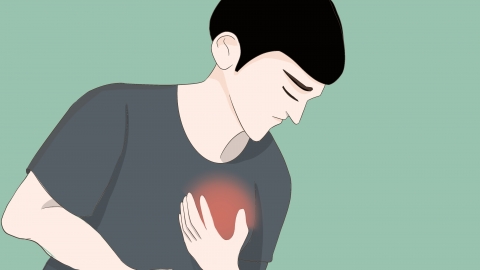What should I do if I have something on my mind, feel anxious, and can't sleep?
Generally, feeling anxious and unable to sleep due to emotional distress may be caused by excessive nervous system excitation, emotional dysregulation, neurasthenia, anxiety states, arrhythmia, or other reasons. It is recommended to seek medical attention promptly, identify the underlying cause, and then improve symptoms under a doctor's guidance through emotional counseling, medication, and other methods. A detailed analysis is as follows:

1. Excessive Nervous Excitation: Emotional concerns can cause continuous activation of brain neurons and sympathetic nervous system excitement, leading to palpitations and difficulty sleeping. One hour before bedtime, write down your worries on paper to organize your thoughts; this "completion" act signals the brain to relax. Combine this with 10 deep breaths to gradually calm nervous system activity.
2. Emotional Dysregulation: Accumulated negative emotions that are not released can transform psychological stress into physical symptoms. Talking about your concerns with family or friends, or releasing emotions through activities like running or shouting, can help prevent going to bed with unresolved feelings.
3. Neurasthenia: Prolonged emotional burdens can lead to nerve fatigue, causing symptoms such as palpitations, insomnia, and decreased memory. Follow a doctor’s advice when using medications such as Oryzanol tablets, Vitamin B1 tablets, or Anshen Bunao Liquid. Avoid thinking about complicated matters before bedtime to reduce nervous system strain.
4. Anxiety State: Persistent anxiety triggered by emotional concerns may manifest as unexplained palpitations, restlessness, and frequent awakening during sleep. Patients should take prescribed medications such as Sertraline Hydrochloride tablets, Paroxetine tablets, or Lorazepam tablets, along with mindfulness meditation exercises to stabilize mood.
5. Arrhythmia: Long-term emotional tension may trigger abnormal heart rhythms, causing noticeable palpitations that disrupt sleep, often accompanied by chest tightness and dizziness. Medications such as Metoprolol Tartrate tablets, Wenxin Granules, or Shensong Yangxin Capsules should be taken as directed by a physician. In severe cases, radiofrequency ablation may be performed to correct cardiac rhythm abnormalities.
Maintain a quiet and comfortable bedroom environment, and avoid consuming coffee or strong tea before bedtime. Establish regular sleep habits—wake up at a fixed time every day even if you slept poorly the night before—to gradually adjust your sleep rhythm and minimize the impact of emotional concerns on sleep.




